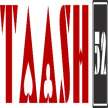Ultimate Guide To Hire A Rummy Game Development Company
How To Hire A Best Rummy Game Development Company

Hiring a rummy game development company is an important step in bringing your game idea to life. The success of your game depends on choosing the right development team that understands your vision and has the expertise to execute it effectively. To help you in this process, here's an ultimate guide to hiring a rummy game development company:
1. Define Your Requirements: Before you start searching for a development company, clearly define your requirements for the rummy game. Consider aspects like game platform (web, mobile, or both), game variants (points rummy, pool rummy, etc.), features, graphics, and any other specific elements you want in your game.
2. Research and Shortlist: Conduct thorough research to find rummy game development companies that match your requirements. Look for companies with experience in developing rummy games, a solid portfolio, positive client reviews, and expertise in relevant technologies like Unity, Unreal Engine, or HTML5.
3. Evaluate Expertise and Experience: Review the expertise and experience of the shortlisted companies. Check their portfolios to see if they have developed similar games in the past. Look for expertise in game mechanics, UI/UX design, multiplayer functionality, and other relevant areas.
4. Check Client References: Reach out to the clients of the development companies you're considering and ask for feedback on their experiences. Inquire about their satisfaction with the company's communication, professionalism, adherence to timelines, and overall game quality.
5. Technical Proficiency: Verify the technical proficiency of the development team. They should be skilled in programming languages like C++, C#, or JavaScript, as well as have experience with game development frameworks and tools. Assess their ability to integrate features like real-time multiplayer, social media integration, in-app purchases, and analytics.
6. Communication and Project Management: Effective communication is crucial for a successful collaboration. Evaluate how responsive and proactive the development company is during initial discussions. Also, consider their project management approach and tools they use to ensure smooth progress and transparency throughout the development process.
7. Quality Assurance and Testing: A reliable game development company should have a strong quality assurance process in place. Inquire about their testing methodologies to ensure that your game will be thoroughly tested for bugs, performance issues, and compatibility across multiple devices.
8. Cost and Contractual Agreements: Obtain detailed cost estimates from the shortlisted companies. Compare the pricing structure, including any additional charges for maintenance and post-launch support. Additionally, carefully review the contract terms and conditions, ownership rights, and confidentiality clauses before finalizing any agreements.
9. Support and Maintenance: Game development doesn't end with the launch. Ask about the post-launch support and maintenance services offered by the development company. Ensure that they provide regular updates, bug fixes, and are available to address any issues that may arise.
10. Flexibility and Scalability: Consider the flexibility and scalability of the development company. If you have plans for future enhancements or expansions, discuss their ability to accommodate such changes and their experience in scaling up games to accommodate increasing user loads.
11. Timelines and Milestones: Establish clear timelines and milestones for the development project. Ensure that the company has a track record of meeting deadlines and has a structured development process to keep the project on track.
12. Legal and Intellectual Property Considerations: Verify that the development company respects intellectual property rights and has a clear understanding of legal requirements. Ensure that all aspects related to copyrights, licensing, and ownership are properly addressed and documented.
13. Non-Disclosure Agreement (NDA): If necessary, consider signing a non-disclosure agreement to protect your game concept and any confidential information you share with the development company.
14. Post-Launch Marketing Support: While not directly related to game development, some companies may offer additional marketing support to help promote and monetize your game. Inquire about any marketing services they provide or if they can recommend marketing partners.
15. Final Decision: After evaluating all the above factors, make a well-informed decision based on the company's expertise, experience, communication, cost, and overall compatibility with your requirements.
Remember to conduct due diligence and thoroughly evaluate each development company before making a final decision. Building a rummy game requires expertise and a collaborative partnership, so choose a company that aligns with your vision and can bring your game to life successfully.
About the Creator
Kelly Britt
Kelly Britt is a content and digital marketer at Taash52 Games, a leading rummy game development company. She is an avid reader and likes to remain updated for the latest technology trends.






Comments
There are no comments for this story
Be the first to respond and start the conversation.